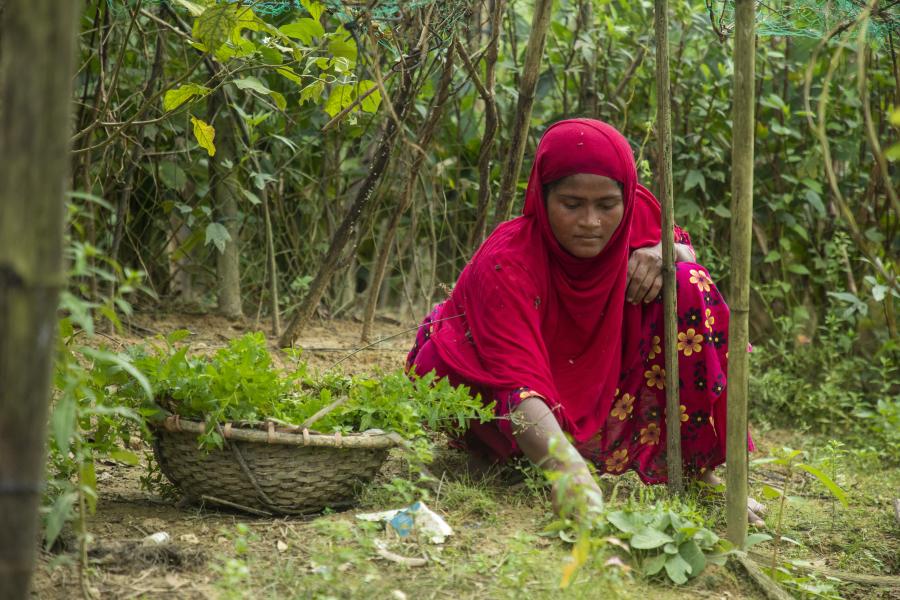2023 population planning figures
-
Refugees and asylum-seekers: 1.27 million
-
IDPs: 1.35 million, 51% women and girls, 49% children*
-
Refugees and IDP returnees: 80,000
-
Stateless persons in Myanmar (Rohingya)**: 600,000
*Demographics based on the 2021 annual statistical report.
**The “Stateless persons in Myanmar (Rohingya)” figure includes IDPs who are also reported in the “Refugees and IDP returnees” category.
2023 situation overview
Violence against civilians and the intensified armed conflict following the events of February 2021 caused tens of thousands of refugees to flee into neighbouring countries and displaced over 982,000 people within Myanmar. Current displacement trends indicate that 1.35 million IDPs may be in urgent need of protection and humanitarian assistance in 2023. Humanitarian actors’ access to the newly displaced has been obtained only incrementally and remains unpredictable. The situation has stalled progress toward voluntary repatriation for refugees. UNHCR has called for comprehensive and regional approaches to solutions for close to 1.1 million refugees from Myanmar, the vast majority being Rohingya from Rakhine state. In response, third countries have committed to step up resettlement and have initiated new complementary pathways.
In 2023, UNHCR’s focus inside Myanmar will be on responsive and timely delivery of humanitarian assistance, strengthening community-based protection and resilience, and supporting pathways to durable solutions for IDPs and stateless persons, including an estimated 600,000 stateless Rohingya. UNHCR will work with partners to support the creation of conditions conducive to return by promoting the restoration of the rights of Rohingya and implementation of the recommendations of the Advisory Commission on Rakhine State. Across the region, UNHCR will continue to advocate for expanded and predictable access to displaced populations within and from Myanmar and will engage with community-based organizations to support the delivery of assistance.
In addition, UNHCR will continue to advocate for safeguarding the right to return for Rohingya refugees and work with the Government of Bangladesh and partners to sustain support to meet the needs of over 900,000 refugees in Bangladesh, including through the Joint Response Plan for the Rohingya Humanitarian Crisis. UNHCR will broaden the resilience agenda in Bangladesh through the expansion of the Myanmar curriculum to 12,280 children at the pre-primary level, skills development and livelihoods activities via the distribution of production kits to 72,000 households. UNHCR will collaborate with partners to advocate for alternatives to detention and enhanced self-reliance and empowerment for Rohingya in Malaysia and India via community-based initiatives. Region-wide, UNHCR will redouble efforts to facilitate third-country solutions for Rohingya refugees and strengthen resettlement processing capacity while also advocating for scaled-up support for complementary pathways.
